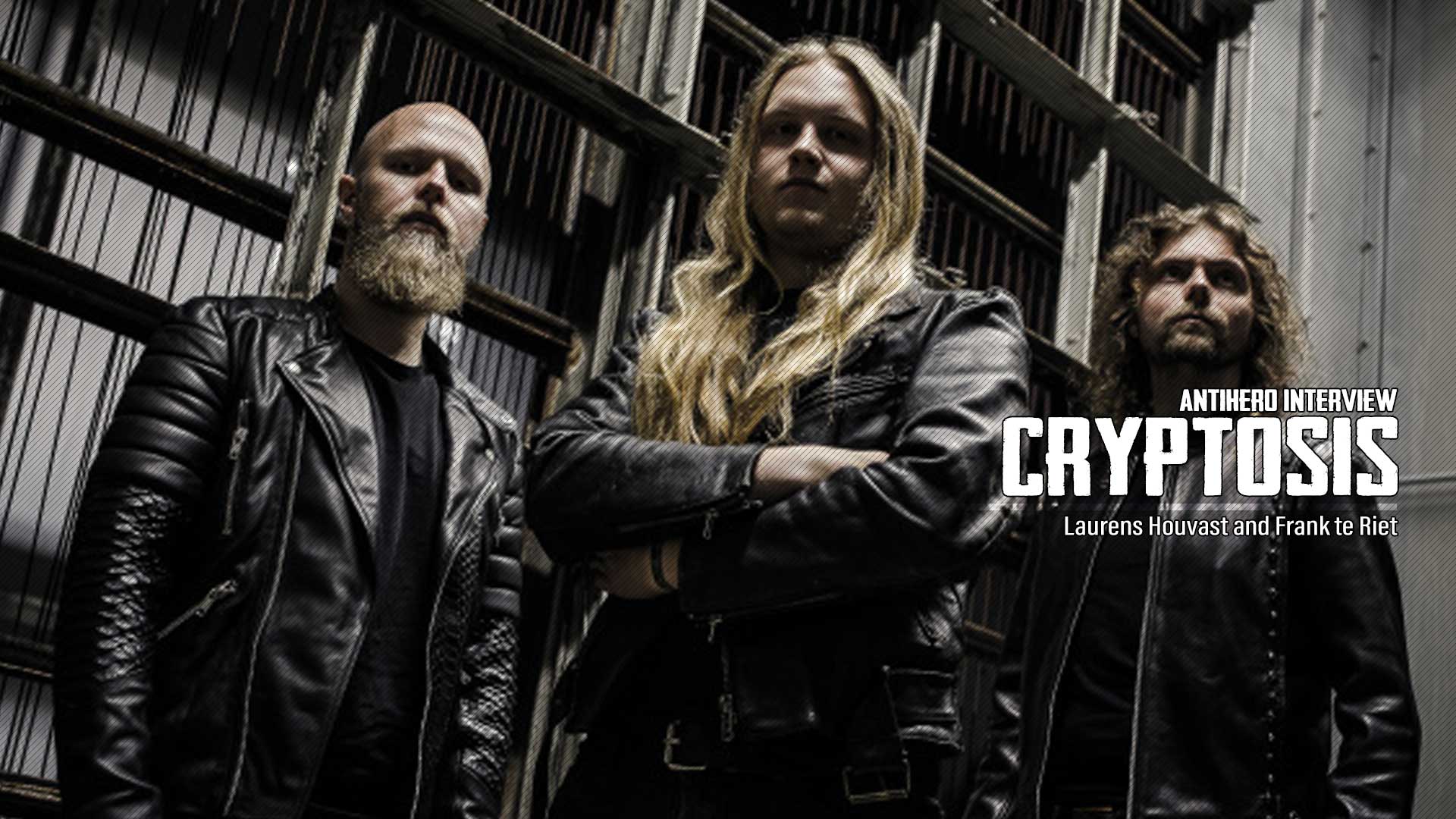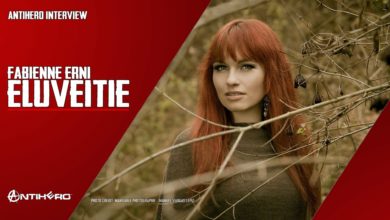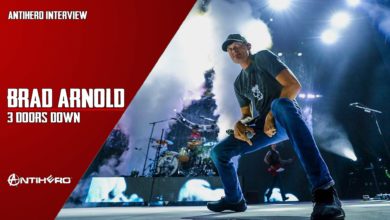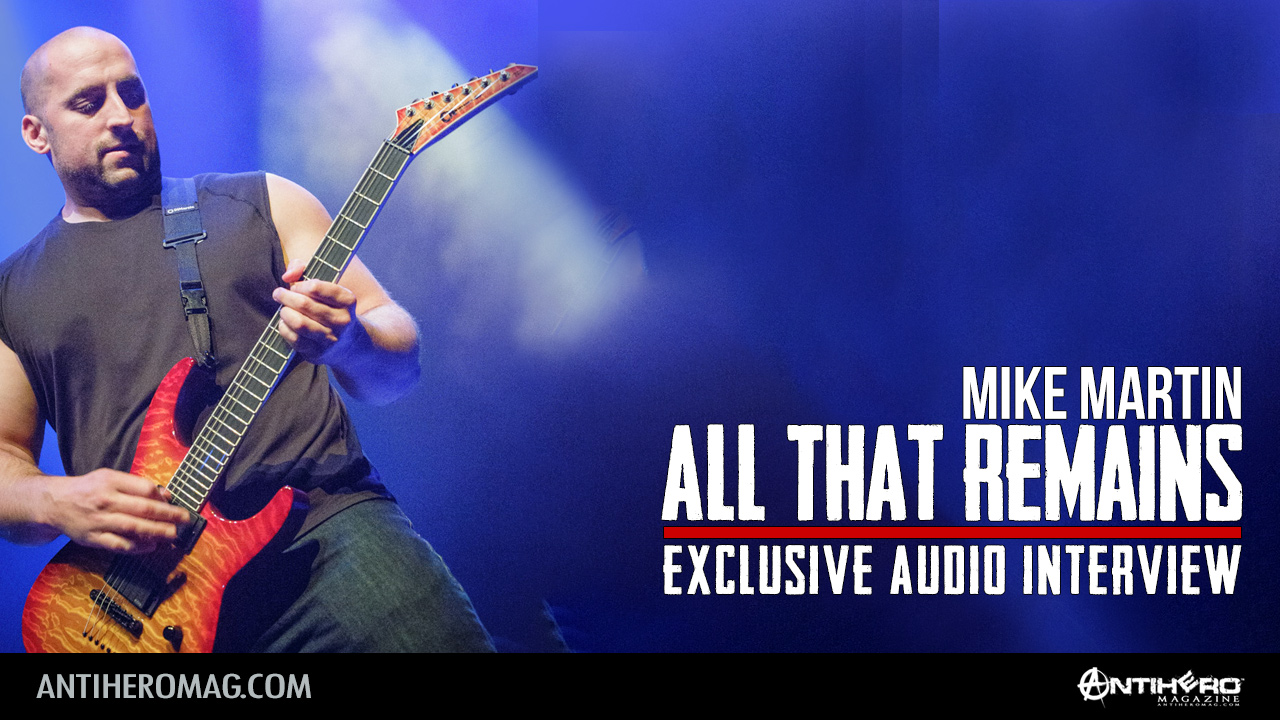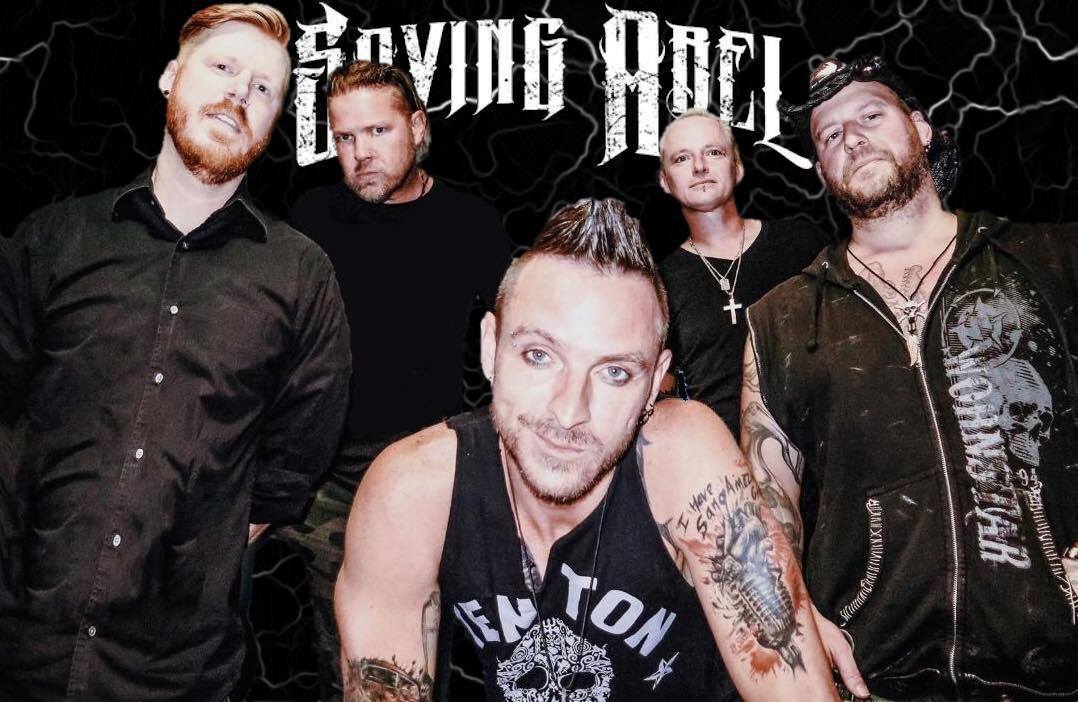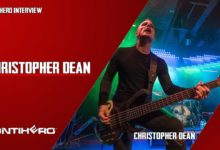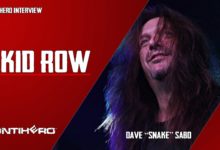One of the most exciting debuts to drop this year has been Bionic Swarm by Cryptosis. Skillfully blending elements of Thrash, Black Metal, and Progressive Metal, the band have composed a stunning album that plays out like a well-crafted novel. It was a pleasure to speak with both Laurens Houvast (guitar, vocals) and Frank te Riet (bass, mellotron). We had a chance to dive deep into the history of the band, the inspirations behind the concept for Bionic Swarm, and much, much more.
ANTIHERO: So, are you both in the Netherlands?
Frank: Yeah.
Laurens: Yeah, we actually live quite close to each other. We come from a town called Enschede in the east of the Netherlands and we live about five minutes apart.
ANTIHERO: Then you guys get to jam a lot together?
Frank: Well, then you need a drummer, and he lives about one and a half hours away from us so that’s a little bit more difficult to do that.
ANTIHERO: At least we have the technology, though. How did you guys get together?
Frank: Well, Laurens and me, we have been playing in different bands in the past. We grew up in the same area and we hang out with the same people, so we go way back. When we started the band we had previously, Distillator, we went out and we did some shows. Then we met Marco (Prij), our drummer, who was playing with another band. They opened up for us one night and we thought he was a really cool guy and a good drummer. So, one day, we were looking for a replacement for our old drummer and he wrote us and a message. The rest is history.
ANTIHERO: That’s awesome how everything came together for you guys like that.
Laurens: We met him when he was in another band, and he’s a pretty young guy. He was born in ’96, I think. I think he turned twenty-five this year, but he’s been with us for seven years now. At that time, you could really see the potential that he had. He could play the drums pretty well, but he was in this Heavy Metal band which was not fast. It was more mid-tempo stuff. We were a Thrash, high-speed band, and he couldn’t play that at all. We invited him over and we jammed around a little and he could not match the speed. After two weeks, he came back faster than our original drummer, so he was straight in the band.
ANTIHERO: Wow, two weeks…
Laurens: Yeah, he rehearsed his ass off.
ANTIHERO: How did the writing for the album come about?
Frank: Laurens and I live really close like we mentioned and whenever we start to write an album we just go and collect a lot of ideas over the year. We put them in a library. Some of these ideas we are recording already in our own studios just to get a really clear picture of how the best ideas are going to sound. We’re putting that in the database as well. The other guys in the band can comment and try to make some changes. After the year, we just go and pick from the library. We have like two or three hundred of these ideas and we just go and pick the best ten to fifteen ideas. From there, we just try to write more stuff and try to make songs out of this. Yeah, I think this time we also took it a bit more seriously in terms of we invested more time in it. Instead of writing an album in a year, we spent like two years. We really just wanted to write the coolest album that we could, and I think we pretty much succeeded with that.
Laurens: Definitely. Yeah, we’re really happy with how it turned out in the end because we make pretty good pre-productions in our own studios. We have a certain expectation about how the final product will sound, but it sounds really great. It’s better than we hoped it would be.
ANTIHERO: So, do you guys think the key is to always record riffs and ideas?
Laurens: Not always…
Frank: Definitely…
Laurens: No, not always. I think not always, but when we have an idea, we record it. We record on our phones. Then we listen to it later. If there are some good ideas, we go to our studio and play them behind the computer in the recording software. We save them in our database. That’s basically how we work.
ANTIHERO: What software do you use?
Frank: Steinberg Cubase.
ANTIHERO: Ok, yeah, Cubase has been around a long time.
Frank: Yeah, that’s why we use it. For example, when I was young, I just started working with Cubase. I never changed software. Maybe another software is better, but I am really used to this. Laurens is using it too so for us it’s easy to work with the same stuff.
ANTIHERO: There’s definitely something to be said for knowing the program inside and out.
Frank: Yeah, and it took a very long to process everything, all the options that the software has. Whenever you’ve invested so much time, it becomes harder to ditch it.
ANTIHERO: Where did you guys record the album?
Laurens: Different locations really. Because we use Cubase a lot, we know how to work with it. We can record the guitar and the bass. We can record ourselves basically and vocals as well. We just needed to rent a good space for the guitar and the bass and vocals. We rented a nice space for the drums as well, and we worked with an engineer who helped us there. The mixing and mastering were something we could do professionally. For this part, we always look for a professional studio to help us do this. I think we found the right guys. We got this guy from Sweden called Fredrik Folkare. He’s the guitar player from Unleashed, and he has his own studio. Yeah, he did the mix for the album, and the mastering was done by Tony Lindgren from Fascination Street studios. He’s a really good mastering engineer. He’s also done stuff for Sepultura, bands like Arch Enemy, Opeth. He also did the mastering for the latest Vardruna as well. He has really, really good references. That’s why we asked him to master the project. He was really happy to do it. He did a really nice job.
ANTIHERO: I agree. The album has a huge sound. I got kind of a Sci-Fi, dystopia vibe. Is there a concept to the album?
Frank: Yeah, definitely. There’s a Sci-Fi, futuristic concept and it’s integrated in everything from the music to the artwork and the lyrics. Basically, it’s about eight different stories they are all personal stories from people living in the year 2149. They just describe the world how they see it – what kind of technology, what kind of advancements at that time that they have.
ANTIHERO: Was there anything you read or watched that influenced the development of the story?
Frank: The Netflix series Black Mirror is a good starting point.
ANTIHERO: That’s an incredible series!
Frank: Really well done and well-executed. We watched those and we really got inspired. From there it just took off and we really used our imagination. It’s really interesting because the future is unwritten. You can fantasize about it and make your own stories. That’s what we did.
ANTIHERO: That’s awesome. When I was going through the album, the first track that I picked out to play for some buddies of mine was “Transcendence”. I thought that was a pretty good reference point for you guys.
Laurens: It is. I think we made a very diverse album with some fast songs but also with some more mid-tempo songs. For this album, we used to be a pure 100% old-school Thrash Metal band, we just let that go. We just write what comes to mind. If it’s cool, we record it. We didn’t want to hang onto one genre, you know. We wanted to cross over on all the genres. So, there’s some Black Metal in there. There’s some Thrash, of course. The Thrash Metal DNA is still in the music. There’s Symphonic stuff. There’s a lot of Progressive stuff on there. I think it’s a really good combination. I think the old school stuff we did in our previous band was suffocating us because we wanted to do much more than this, and we can do much more than this. So, we decided to just do it.
ANTIHERO: Speaking of the Black Metal influence, on “Decipher,” I heard some old Emperor and even Dissection in there.
Frank: Those are really nice references, you know. We really love those bands. It’s definitely music that we listened to when we were younger and that we’re still listening to. Those are really great bands.
ANTIHERO: Yeah, like you said there is a lot of different pacing of the songs. I really thought “Prospect of Immortality” had a really good groove to it.
Laurens: Yeah, with “Prospect of Immortality,” it’s not your typical verse/chorus stuff. It’s a very Progressive song. It was really fun writing this song. I think it shows the diversity for the band. I think also for the future, this is a song that we will write more stuff like. It’s a good mixture between these fast songs and the mid-tempo Progressive stuff. There’s this Atmospheric, Groovy stuff that works really well. Also, if you want to play longer shows, if you play maximum speed for an hour or one and a half-hour long, you can’t do it. It’s like you’re not human.
ANTIHERO: I hate to sound cliched, but you have to have the peaks and valleys to make it flow better.
Laurens: Also, for the audience. People don’t want to listen to one and a half-hour of 250 BPM Thrash Metal. They want some diversity in there, some ups and downs like you mentioned. So, it’s really good to have this diversity.
ANTIHERO: Yeah, I found on that song and another really unique track, “Conjuring the Egoist,” I really got a Prog vibe, and maybe a Voivod kind of feel.
Laurens: Cool. Yeah, it’s not based on any Voivod song or whatever. It’s fun because a lot of people, they say, “it reminds me of Coroner. It reminds me of Gojira. It reminds me of Slayer like very fast Slayer stuff.” Emperor, Dissection are mentioned a lot as is Vector. We also did that split with Vector…
ANTIHERO: I didn’t know about that…
Laurens: Yeah, we a split EP and released it in February this year.
ANTIHERO: That’s definitely something to look for.
Laurens: A lot of people, they want to compare us to a lot of bands. I think it’s very personal. People listen to the song; they get a specific feeling. For everyone, it’s different. Generally, we got a very good response so that’s the best.
ANTIHERO: It’s definitely an impressive album. Since I have you both on here, would you mind both speaking to your musical background?
Laurens: I had guitar lessons. I think when I was 11 or so, I started with guitar lessons. I did several years, but after that, I quit. I got into playing in bands. From that point, I became self-taught. That’s about it for me. I don’t know about Frank.
Frank: Yeah, for me, I had a few lessons on bass. It was five, six months or so, but when I was a bit younger, I had some authority problems. I couldn’t really work with a teacher. I just started figuring it out for myself and playing in bands. I never had really a lot of lessons for bass. Most of the stuff I just learned from playing with musicians that were better than me, so I just grew better with them.
ANTIHERO: What kind of gear are each of you using?
Frank: For my bass rig, I use a Rickenbacker 4003 and I use an Orange OB-500 amp. This is my studio setup, so I’ve got an 8×10 bass cab. It’s not really impressive stuff, but it’s an Ashdown. I bought it basically because it’s really big. Then I use an old Marshall with an old Marshall 4×12 speaker cab that I use for my other signal with is a mellotron, an Electroharmonix mellotron. So, basically, that’s what I use with a switch pedal. In the studio, I use an Ibanez Tube Screamer between the Rickenbacker and the Orange. It’s a pretty simple setup for me.
Laurens: I think Frank’s use of the mellotron has made our songs sound more Symphonic. It gives us a really different sound because we sound like a Symphonic, aggressive, Thrash Metal/Black Metal band as a three-piece. We were looking for our own sound for so many years. Especially as a three-piece, for example, if the guitar player plays a guitar solo, you only hear drums and bass. We basically wanted to find some kind of solution to prevent this from happening. That’s why Frank started to play stereo and we used a lot of different distortion pedals for a second amp that we can switch on during a solo with a pedal, a splitter pedal. At some point, Frank introduced the mellotron to the band. It gave us a Symphonic sound. It was a little bit strange because it was so different, but after we used it in the rehearsal room. It was mind-blowing because we could hear our own sound changing into something that other bands don’t have. This was really good. After that, I also switched to a stereo setup. I used an Engl Fireball 60 watts. It was my main amp, and now it’s my second. Now, my main amp is an Engl 100-watt Richie Blackmore signature…
ANTIHERO: That’s a killer amp…
Laurens: Yeah, it’s like a beast. It stands out in the mix really tight, the high gain. I have four speaker cabinets. I try to use two left and two right if it’s possible, but mainly, most of the time, I use one left and one right. I have two Marshall cabs, a 1960 A and B and I also have a Randall XL and an Engl speaker cab. I play more like a midrange guitar. It’s an ESP LTD guitar, Explore model. It’s an Exp-400, I think. I never been this guitar nerd or whatever. I never really got into all this technical stuff about guitars or buying them and collecting them. I just bought a guitar. The black guitar that I own, I bought it in 2007 or 2008, and it’s still my favorite guitar. It still plays well. It feels nice. I didn’t have the money either (laughs).
ANTIHERO: You save a lot of money not having that gear buying bug that some people. Personally, I have to not even look at Reverb and eBay. Do you guys mind explaining what the difference is between a mellotron and a keyboard?
Frank: Yeah, that’s basically the way how it works, technically and if I say this correctly, a mellotron is just like the same. It’s an instrument with keys but the sound is produced with magnetic tape. It’s just like with a Hammond basically. You see this instrument in ‘60s music like Beatles, The Animals and also in ‘70s horror movies. It has a really eerie sound which makes it perfect for Metal music in my opinion.
ANTIHERO: So, would that be where you have like all the analog knobs that you adjust on the fly?
Frank: We use it where it only has one sound. Just like you cannot change the sound of your distortion on your guitar while you’re playing. So, it’s just a pedal we switch on and off, basically. Of course, on the record, we experimented a little bit more with it because there are some really cool sounds with choirs and stuff, but that’s something that we can’t really do live.
ANTIHERO: I did want to ask you guys what you thought about the plan on releasing an album right now and maybe the future of touring and promoting it in the pandemic climate that we’re in.
Laurens: Yeah, we would like to go on tour but unfortunately, it’s impossible. We had a tour scheduled with Vector in Europe for May and June. It got postponed, or actually, I think it got canceled for the obvious reasons. It’s really hard for a band to release an album only online and without doing a tour to support it or playing at least one or two live shows. It’s not even possible. I think the core of the Metal business is selling merchandise at live concerts. For us, it’s a pity that we can’t do it. We invested a lot of time and money into this album. Hopefully, people will pick it up online and buy it over there. A lot of other bands struggle with the same problem. It’s just not a good time to release an album, but it is the way it is, and we have to make the best of the situation.
ANTIHERO: Have the powers that be give you guys any kind of time frame as to when you can start gigging again?
Laurens: We have a live stream scheduled for April 24th, but that’s all we have because everything for this year is canceled so far. A lot of summer festivals got canceled. It doesn’t look very good. They’re experimenting with concerts with a minimum amount of people and stuff like that, but it’s all in a testing phase. For the government to make a policy based on those results, just takes a lot of time.
ANTIHERO: I wish you guys the best of luck. I’m sure it is extremely challenging right now.
Laurens: Thank you very much.
Frank: Thank you.
ANTIHERO: Congratulations on the album, it’s smoking!
Laurens: Glad to hear that!
Frank: Yeah, glad to hear that.

